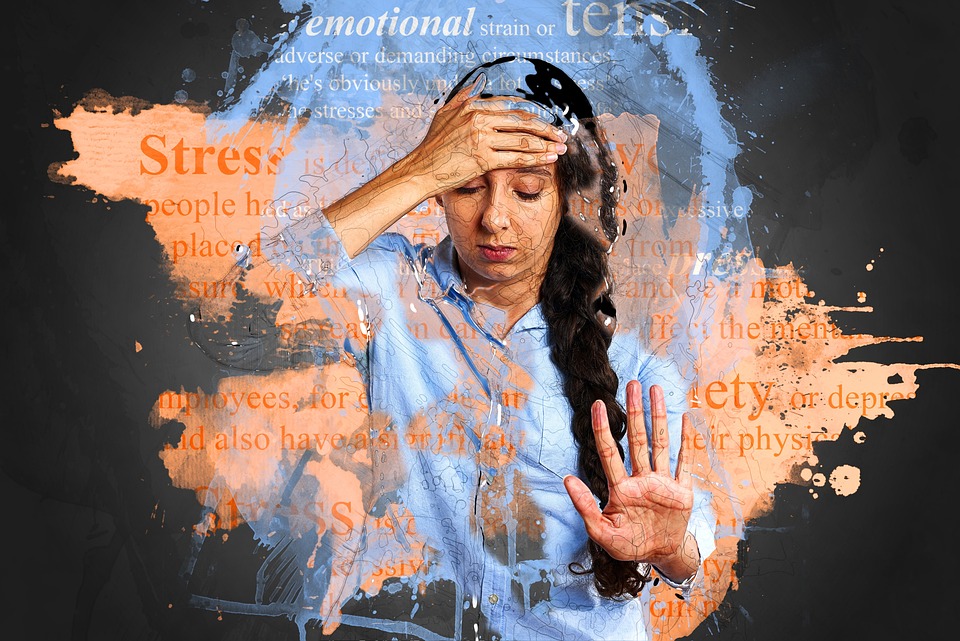Everyone’s heard about “hot flashes”, but I’m talking about that tingling, cold shivery feelings that suddenly comes over your body. It’s called a “cold flash.”
So, read on to learn about the causes of cold flashes.
Anxiety and Panic Disorders
 As per the mental health statistics of 2022, anxiety is a very common mental health condition that affects around 284 million people in the world. This illness triggers feelings of unease like fear or worry –be it mild or severe- and can make it difficult to get through the day. Cold flashes can also be the results of anxiety disorders and experts attribute these to three reasons.
As per the mental health statistics of 2022, anxiety is a very common mental health condition that affects around 284 million people in the world. This illness triggers feelings of unease like fear or worry –be it mild or severe- and can make it difficult to get through the day. Cold flashes can also be the results of anxiety disorders and experts attribute these to three reasons.
The first reason is sweat. When you are stressed or anxious, your body, or more specifically your apocrine glands will react to this strong emotion by releasing sweat. And, when it evaporates, it will leave behind a cooling sensation on your skin. This is what can lead to your shivering and chills.
Next, there is the hormonal imbalance when your body reacts to feelings of stress or anxiety. The adrenal glands will release the adrenaline hormone, which can then result in chills and shivering. Moreover, it’s important to remember that such a situation can alter your blood circulation. In times of “fight or flight” panic mode, your blood is more likely to shift away from your extremities to your major organs. This shift in your blood circulation can trigger that cold flash you are suffering from.
Changes to Your Menstrual Cycle
 People say it’s normal to experience cold flashes when you are in your late 40s or early 50s because you’ll be nearing perimenopause. But, what if you are experiencing cold flashes during your mid-twenties or thirties?
People say it’s normal to experience cold flashes when you are in your late 40s or early 50s because you’ll be nearing perimenopause. But, what if you are experiencing cold flashes during your mid-twenties or thirties?
Well, don’t worry about it, because it’s a common period-related condition. During your menstrual cycle, your lifestyle choices such as alcohol consumption, smoking, eating habits and stress issues can trigger hormonal changes and lead to cold flashes.
And, the good news is that lifestyle is something you can easily control!
Pregnancy
 Being pregnant, especially for the first time, is an awesome experience – a lifetime one. You will be bombarded with lots of questions and suggestions from all the directions, “Don’t do this, don’t do that, don’t eat this, don’t drink that…” But, most importantly, your body will go through some significant physical changes like an increased body weight, changes to your blood circulation, hormonal changes and so on. During those times, it’s completely normal if you experience cold flashes as well as hot flashes.
Being pregnant, especially for the first time, is an awesome experience – a lifetime one. You will be bombarded with lots of questions and suggestions from all the directions, “Don’t do this, don’t do that, don’t eat this, don’t drink that…” But, most importantly, your body will go through some significant physical changes like an increased body weight, changes to your blood circulation, hormonal changes and so on. During those times, it’s completely normal if you experience cold flashes as well as hot flashes.
In fact, a 2001 research showed that around one-third of women have experienced “postpartum chills” during their pregnancy. (Note: There is a sharp contrast between postpartum chills and cold flashes.) Postpartum chills usually consist of shivering and sudden intense chills which result within hours after labor and delivery.
So, if you are pregnant (congrats if it’s your very first time, enjoy it to the max), loss of appetite, itching, fatigue, anger and anxiety are not the only issues you would be facing.
Perimenopause/Menopause

Perimenopause and menopause are probably the most common reasons for cold flashes. They are names for some of the drastic changes that take place in a woman’s life.
Usually, years before the full stop of your periods, you will begin to experience changes like increased breast tenderness, skin dryness, fatigue, mood changes, irritability along with a drop in estrogen.
However, the most evident and significant are the classic hot flashes. You can suddenly wake up in a sweat during the night or in the morning and think that you’ve had a really bad dream or the room temperature was too high. While “hot flashes” always get the top priority, cold flashes are also a prominent symptom of perimenopause and menopause.


